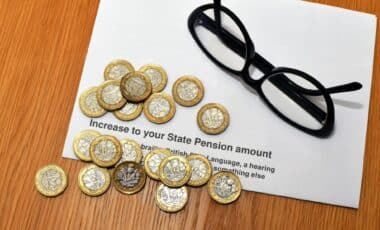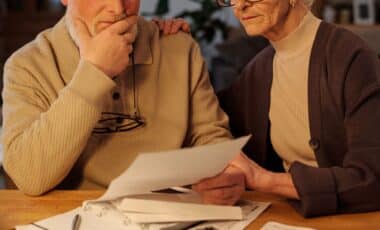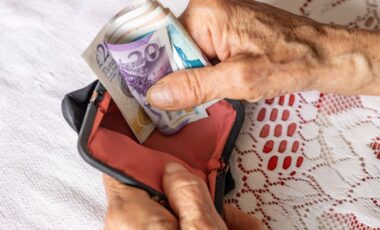The taxation of state pensions has long been a complex issue in the UK, particularly as more pensioners rely solely on their state pension for financial support. The state pension is designed to provide a basic income for retirees, but with rising costs and an evolving tax system, more and more pensioners are finding themselves unexpectedly liable for tax. While many pensioners do not pay tax because their income falls below the personal tax allowance, the situation is changing. According to a recent report from the House of Commons Library, the ongoing increase in state pensions under the government’s ‘triple lock’ system, combined with the freezing of the personal tax allowance at £12,570 since 2021, is raising new concerns about the financial burden on retirees. This article explores the complexities of state pension taxation and the potential implications for future retirees.
The Growing Concern Over Taxation of State Pensions
State pensions in the UK are taxable, but pensioners typically do not pay tax if their income remains below the personal tax allowance, which is currently set at £12,570. This threshold is the level at which individuals can earn income without paying tax. The concern arises when pensioners who only receive the state pension see their income increase under the ‘triple lock’ system, potentially pushing them over the tax-free threshold. According to the House of Commons Library, the state pension increases each year based on the higher of inflation, average earnings growth, or 2.5%. This mechanism, while designed to ensure that pensioners’ incomes keep pace with inflation, could unintentionally lead to more pensioners being liable for tax.
The report highlights that as the state pension rises, it may push more pensioners into the tax system, especially as the personal tax allowance has been frozen since 2021. This freeze means that, even as pension incomes grow, the tax-free threshold remains the same, creating a situation where more retirees could find themselves facing a tax bill despite having no additional source of income.
The Rising Impact of the Triple Lock System on Pensioners’ Finances
The ‘triple lock’ system, introduced in 2010, was designed to protect pensioners from the erosion of their income due to inflation. The system ensures that the state pension increases by the highest of inflation, average earnings, or 2.5%. While this has been beneficial in maintaining the purchasing power of pensions, it has also resulted in an unintended consequence for many pensioners. According to the House of Commons Library, while the triple lock guarantees an increase in the state pension, it also creates the potential for pensioners to exceed the personal tax allowance.
This issue is compounded by the freeze on the personal tax allowance, which has been set at £12,570 since 2021. While the state pension rises each year, the personal tax allowance has remained the same, meaning that more pensioners could find themselves subject to income tax. The report points out that this may lead to financial hardship for pensioners who are already living on fixed incomes, particularly those without private pensions or other savings.
Why More Pensioners Could Be Facing Taxation in the Near Future
As the state pension continues to rise each year under the triple lock system, more pensioners could find themselves liable for tax. For those who rely solely on the state pension, even a modest increase in their pension could push them over the personal tax allowance threshold. According to the House of Commons Library report, this situation is likely to become more common in the near future as the state pension continues to grow while the personal tax allowance remains frozen.
The issue is particularly concerning for those pensioners who have no other source of income and are already living on a limited budget. An increase in state pension payments that exceeds the personal tax allowance could result in pensioners having to pay income tax, adding financial strain to their already stretched resources. This situation may affect a growing number of retirees, especially as the cost of living continues to rise.
The Challenges of a Frozen Tax Allowance for Retirees
One of the key challenges highlighted by the House of Commons Library is the freeze on the personal tax allowance. The personal tax allowance has remained at £12,570 since the 2021/2022 tax year, which means that it is not keeping pace with inflation or the increasing state pension payments. This freeze has resulted in more pensioners becoming subject to income tax, even though their overall income is still relatively low.
The report explains that the freeze on the personal tax allowance is part of the government’s fiscal strategy to control public spending. However, it has created unintended consequences for pensioners. As state pensions rise and more pensioners are pushed into the tax system, this could lead to increased financial pressure on individuals who are already vulnerable due to limited income. The report suggests that this freeze is exacerbating the issue and calls for a re-evaluation of how tax allowances are adjusted in relation to pension increases.









